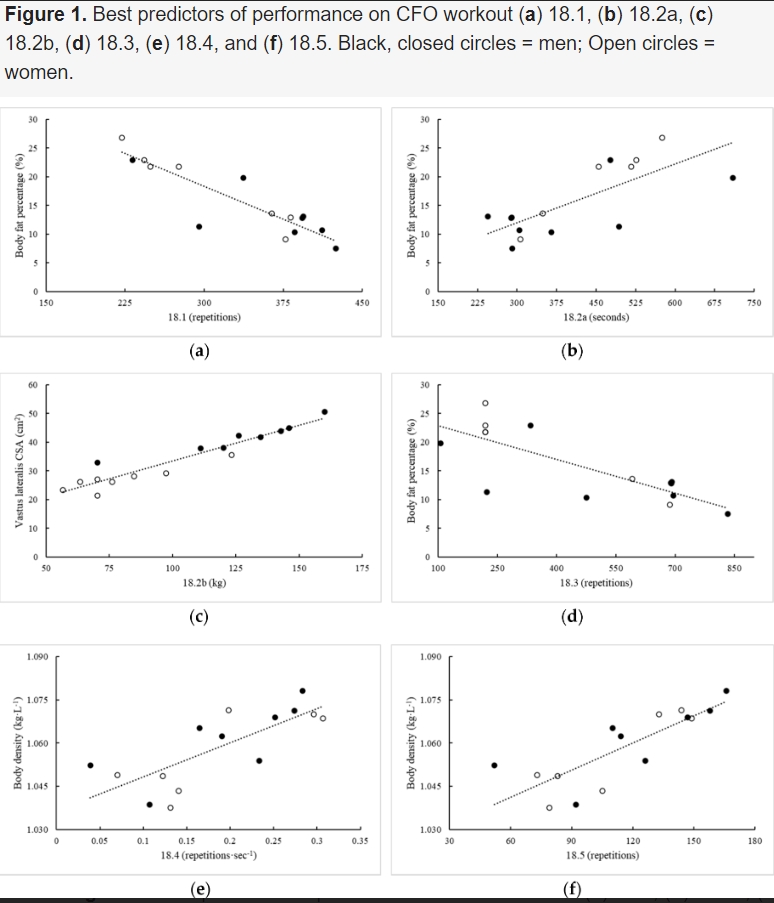Predictors of CrossFit Open Performance
by Gerald T. Mangine Sports 2020, 8(7), 102;
The 2018 CrossFit Open (CFO) was the initial stage of an annual competition that consisted of five weekly workouts. Current evidence suggests that a variety of fitness parameters are important for progressing beyond this stage, but little is known about which are the most important. To examine relationships between CFO performance, experience, and physiological fitness, sixteen experienced (>2 years) athletes (30.7 ± 6.9 years, 171 ± 12 cm, 78.0 ± 16.2 kg) volunteered to provide information about their training and competitive history, and then complete a battery of physiological assessments prior to competing in the 2018 CFO. Athletes’ resting energy expenditure, hormone concentrations, body composition, muscle morphology, cardiorespiratory fitness, and isometric strength were assessed on two separate occasions. Spearman correlations demonstrated significant (p < 0.05) relationships between most variables and performance on each workout.
Stepwise regression revealed competition experience (R2 = 0.31–0.63), body composition (R2 = 0.55–0.80), vastus lateralis cross-sectional area (R2 = 0.29–0.89), respiratory compensation threshold (R2 = 0.54–0.75), and rate of force development (R2 = 0.30–0.76) to be the most common predictors. Of these, body composition was the most important. These fitness parameters are known targets with established training recommendations. Though preliminary, athletes may use these data to effectively train for CFO competition.














